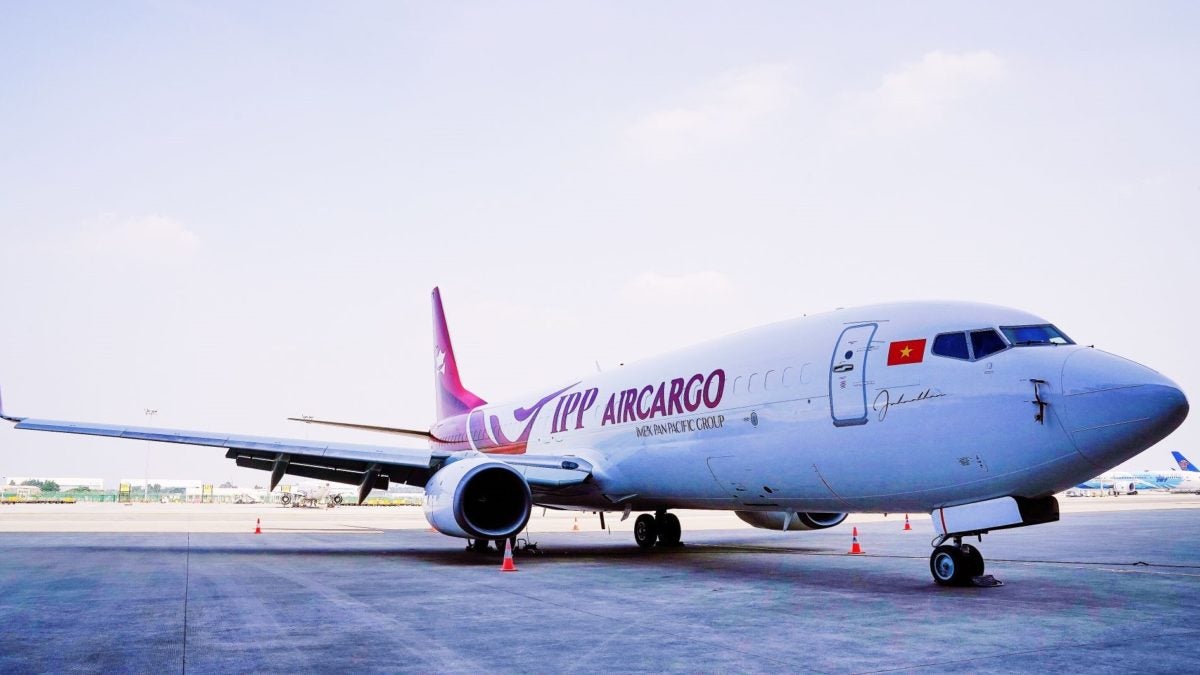Freight News:
Retail tycoon shelves plans for 1st cargo airline in Vietnam
A large Vietnamese conglomerate that dominates the domestic market for retail distribution of luxury and premium fashion brands has pulled the plug on an effort to become Vietnam’s first all-cargo carrier, according to news accounts from the region.
The decision means Vietravel Airlines, a leisure carrier, or Vietnam Airlines will be in position to become the first domestically owned and operated cargo carrier.
IMEX Pan Pacific Group was in the process of creating a local air network to connect the rest of the nation to the two international gateways in Hanoi and Ho Chi Minh City, while also providing export manufacturers with direct access to airlift. IPP Air Cargo had already leased four used Boeing 737-800 aircraft converted to carry cargo containers and was targeting late November to start commercial operations. Boeing partner GAMECO in Guangzhou, China, already completed two conversions.
IMEX Chairman Jonathan Hanh Nguyen told local media the company decided to end the venture because of a slowdown in shipment volumes ahead of a looming recession, Nikkei Asia reported Friday.
The distributor for brands such as Burberry, Tommy Hilfiger and Rolex had ambitious plans for a fleet of 10 long-haul, widebody aircraft for international service. IPP Air Cargo had been experiencing difficulty securing its air operator certificate from Vietnamese authorities. Unsuccessful efforts by FreightWaves to reach the company in recent weeks foreshadowed the shutdown.
The airline has withdrawn its licensing application. Nguyen said IPP Group could revive its plans if the air cargo market recovers, according to Vietnamese newspaper VN Express.

IPPG had said its goal in launching a cargo airline was to bring more competition to the underserved market in Vietnam now dominated by foreign carriers. Agricultural and seafood exports are facing difficulty reaching overseas customers with ocean shipping congestion, officials said.
Two challenges for shippers are that Vietnam’s bilateral air agreements with other nations limit the ability of foreign carriers to increase service to Vietnam on their own. Those airlines can only land in Ho Chi Minh City and Hanoi, forcing businesses to find alternative transport to distribute goods elsewhere in the country.
In March, IPP Group signed an memorandum of understanding with Wagner Corp., an industrial real estate firm in Australia, to develop a direct-trade corridor between the Toowoomba Wellcamp Airport in Queensland and Cam Ranh International Airport on the south coast of Vietnam, according to Australian media reports and meat producer Mort & Co’s website. Service was expected to start in the first half of 2023.
The recent interest in establishing locally owned air cargo service in Vietnam is a response to more manufacturers expanding into the nation as a less-expensive and more politically stable alternative to China. Air cargo volume in Vietnam has grown at a 15% annual clip over the last three decades.
Vietnam Airlines, sensing increased demand for air cargo, recently signaled that it plans to add a stand-alone freighter division, using retired passenger aircraft modified to carry containers on the main deck. Vietravel Airlines, started last year by Vietnam’s largest travel agency, in September announced a joint venture with logistics provider Asean Cargo Gateway to develop a cargo airline called VUair Cargo.
VUair Cargo will focus on transporting goods between Vietnam and large factories in China, Malaysia, Indonesia and Thailand on a fleet of 737-800 converted freighters. Officials said they planned to start with up to four aircraft and double the fleet’s size by the second year.
“Vietnam has a lot of electronics manufacturing and other high-value goods for export and is a very rapidly growing market for air cargo,” said Mark Diamond, vice president at Strategic Aviation Solutions International, in an email.
“There is a lot of widebody passenger belly and freighter capacity into the two main hubs, but one of the advantages of a home-registered carrier is that they can fly out of airports that are closer to the production centers,” Diamond said. “They can also route and schedule the freighters to meet the needs of specific beneficial cargo owners — shippers or end customers — rather than depending on passenger aircraft routings, which are primarily driven by passenger demand.”
Click here for more FreightWaves/American Shipper stories by Eric Kulisch.
RECOMMENDED READING:
Vietnam Airlines to start freighter unit, convert A321s to cargo jets
The post Retail tycoon shelves plans for 1st cargo airline in Vietnam appeared first on FreightWaves.
Source: freightwaves - Retail tycoon shelves plans for 1st cargo airline in Vietnam
Editor: Eric Kulisch